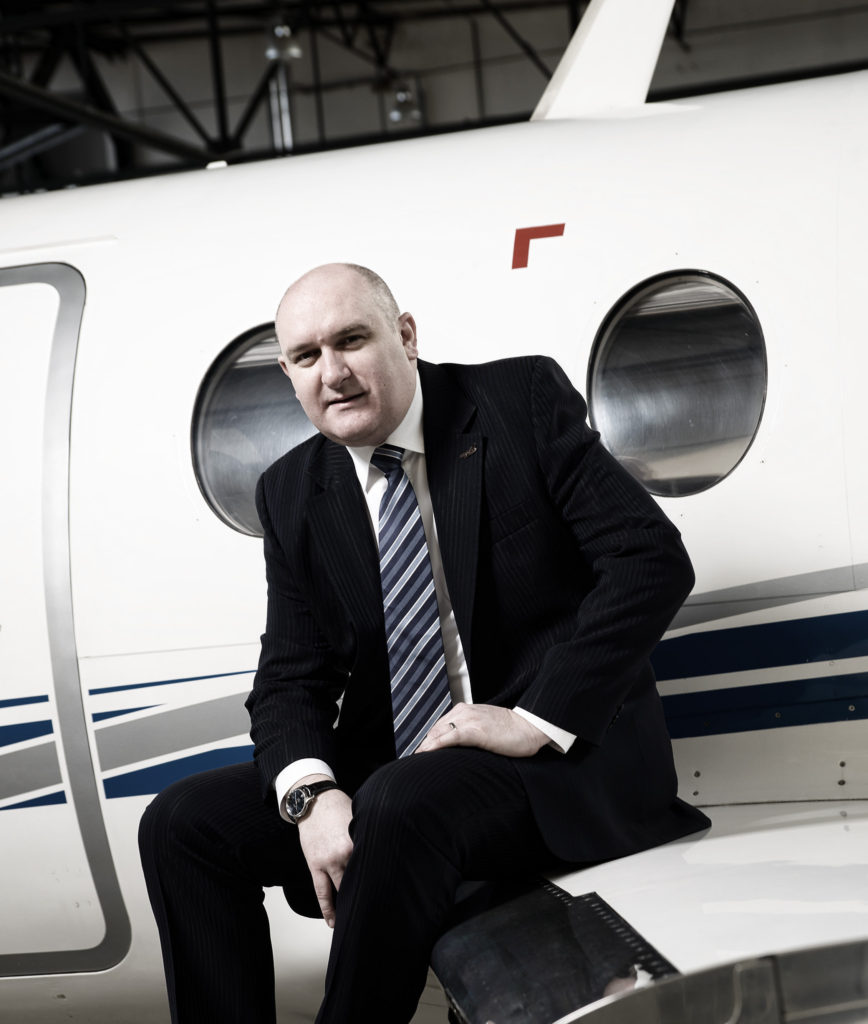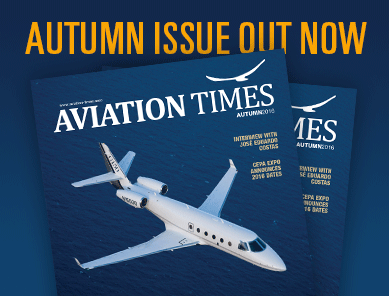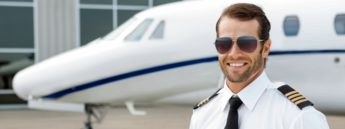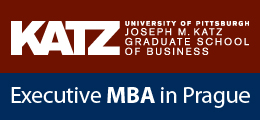Charlie Bodnar – Having Coffee with a Ground Guy
I’m sitting down for a cup of coffee with Karol Bodnar, the CEO of Euro Jet Intercontinental Ltd. Everyone knows him as Charlie and knows the company simply as Euro Jet. Charlie began his aviation career working on the ramp for the Slovak Airport Authority, eventually becoming a lead agent for a US flight support company headquartered in Houston. He then became General Manager of Europe for FERAS, where he led a team of 50 people. He knows the ground handling business from the ground up, in a manner of speaking. Charlie, a Slovak from origin and fluent in English, Russian, Hungarian, Czech and Slovak, may be the best person to explain the aviation ground service situation in Eastern Europe.
“The more corporations grew and invested throughout Eastern Europe, they wanted to fly to airports as close as possible to their local businesses. They were confronted with the challenge to land at small airports without any infrastructure. Especially in Eastern Europe the necessary infrastructure is absent. FBO facilities are uncommon. The airports don’t focus on general aviation and a concession to develop an FBO is rarely given. If one is lucky, the airport is willing to somewhat separate general from commercial aviation and one can get a separate entrance for the crew and a room that could be used as a lounge. In most cases these airports are too small to justify having an FBO and they are not interested in operating a lounge themselves. If an airport would request an investment to set up an FBO, the government would not approve it anyway. In the meantime, business aviation operators have a hard time understanding that their passengers will have to stand in the same line as those travelling with a low cost carrier.”
Charlie has over sixteen years of experience working in different sectors of the aviation industry. He is certified in weight and balance preparation, handling dangerous goods as well as NATA Safety 1st. Charlie graduated from the Military Aviation Academy in Kosice, Slovakia with an Engineering Degree. He has an MBA from the University of Pittsburgh’s Joseph M. Katz Graduate School of Business. He has extensive international working experience in Europe, Russia, and the Middle East.
“I’m a ‘ground guy’! I know what I want from an airport but I also understand the airport’s perspective. So I am not trying to be difficult when asking for something unusual, rather I am trying to take care of what is in the interest of my customer.”
He is well qualified to evaluate what is happening in his part of the industry. He explains how Euro Jet came about and what it has to offer: “From the beginning our goal was to provide our services at every airport in Eastern Europe and Central Asia. If an operator needs to fly to a particular airport, Euro Jet has a representative on location to meet the plane, welcome passengers and crew, escort them, and make all arrangements to help them through. We offer a complete range of supporting services at almost any location. Our station managers are all are fully trained with many years of experience working at the airport.”

Euro Jet’s network now covers over 200 airports in 34 countries. Outside its core region, it has an extensive network of partners that provide the same outstanding service. Getting back to the issues of airports and business aviation, Charlie continues: “The airports in Central and Eastern Europe just don’t understand the significance of business aviation. In their eyes they are dealing with a 19 ton aircraft and assuming that they will not make much money off it. They don’t think that a foreign investment to their region will not arrive with an airline or low cost carrier, but rather with a private jet. The airports don’t understand FBOs and the partners they may have to deal with. They are nervous about a foreign service provider. There is a fear of losing control. Imagine that you have a backyard and someone wants to set up a shack there. It doesn’t feel good. Same feeling as when an FBO is setting up an operation at your airport.”
Eastern Europe from the Baltic to the Black Sea is quite a stretch with different scenarios in the industry. At Bucharest’s Otopeni Airport there is an FBO and it is understood that an FBO is a prestigious gateway to the country. Down in Bulgaria or in Kyrgyzstan or Kazakhstan they are practically nonexistent. “Airports with less than two million passengers have a monopoly; they don’t need anyone. But if they are located in the EU and have more than two million passengers they are confronted with a situation that is unusual for them; the market has to be open for bids. In that case there may be a separate ground handling service provider on the premise. But, we are different anyway. Besides ground handling support, we provide permits, fuel, flight planning, hotel arrangements, crew transportation, and catering. And we also provide credit and pre-payment. A pilot does not want to play accountant and collect receipts for the various services by different suppliers and providers. He just deals with us. For instance, imagine that a plane has a maintenance problem in Budapest. There is no maintenance facility. One would have to speak to two or three vendors, make hangarage arrangements and get authorization for the workers. Things can become complicated, but for my team of 200, it is merely a challenge that we can handle 24/7. We prefer to deal directly with airports and not through third parties. In dealing with airports we can make more happen for the customer.”
Over the past several years, Euro Jet has devoted its time to developing infrastructure throughout its core region. In Prague it has a heated hangar facility capable of storing multiple aircraft. Furthermore according to Charlie: “We have created complimentary crew lounges because we recognize that while the passengers will quickly depart or board the aircraft and be on their way, at many airports there is no place for the crew to prepare for the next flight or even just relax. We have designed these lounges to be a home away from home and have comfortable couches, full work stations, flat screen televisions, and assorted snacks and beverages.”
Euro Jet currently has lounges located in Prague, Czech Republic; Tivat, Montenegro; Zagreb, Croatia; Kiev, Ukraine; Bucharest, Romania; and Poprad, Slovakia. They will soon open up new lounges in Karlovy Vary, Czech Republic and Dubrovnik, Croatia. Euro Jet handles 8,000 flights a year on Executive Jets, Commercial, Cargo, and Military aircraft. Charlie wishes that business aviation is treated better by airports in Eastern Europe and Central Asia and those governments would be more supportive and approve investment in appropriate facilities. It would make a better impression to business executives, celebrities and government guests if they arrive with the full VIP treatment. As for the role of Euro Jet and the services it wants to provide Charlie says: “The way I see things, is that you cannot afford to have anything go wrong, and it is our job to ensure anything related to a flight goes perfectly. It is a Question of Trust. We don’t want to just be a service provider, we want to be a trusted partner.”
Cdr. Bud Slabbaert
Publishing or copying the content of AVIATION Times without a written electronic permission is strictly forbidden. If you have any information, tips, videos, photos or your press releases for us contact us at news@aviation-times.aero.
AVIATION TIMES © Copyright 2012 - 2026








